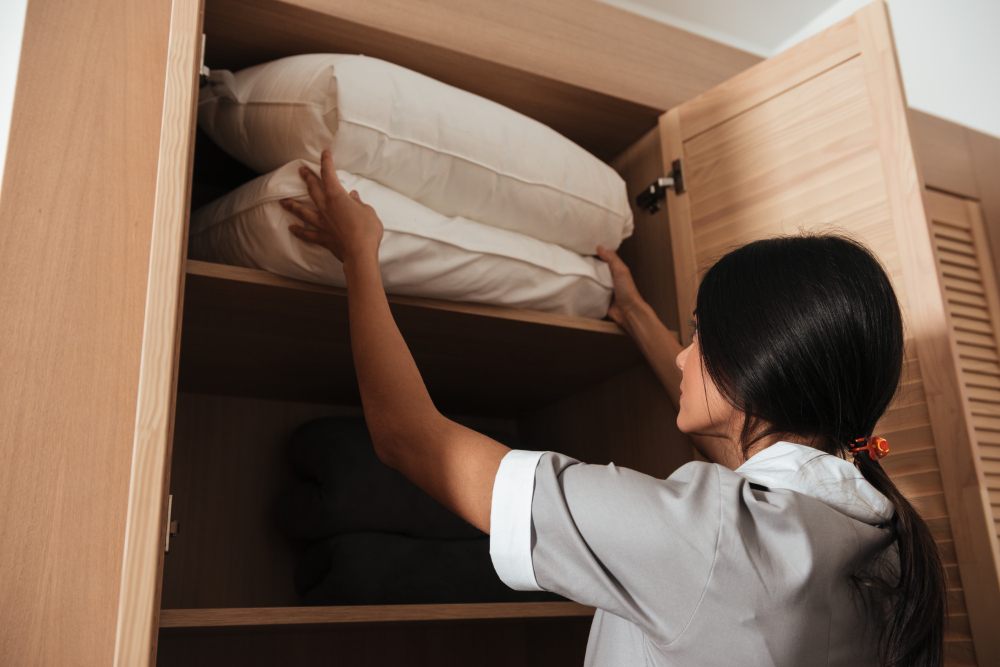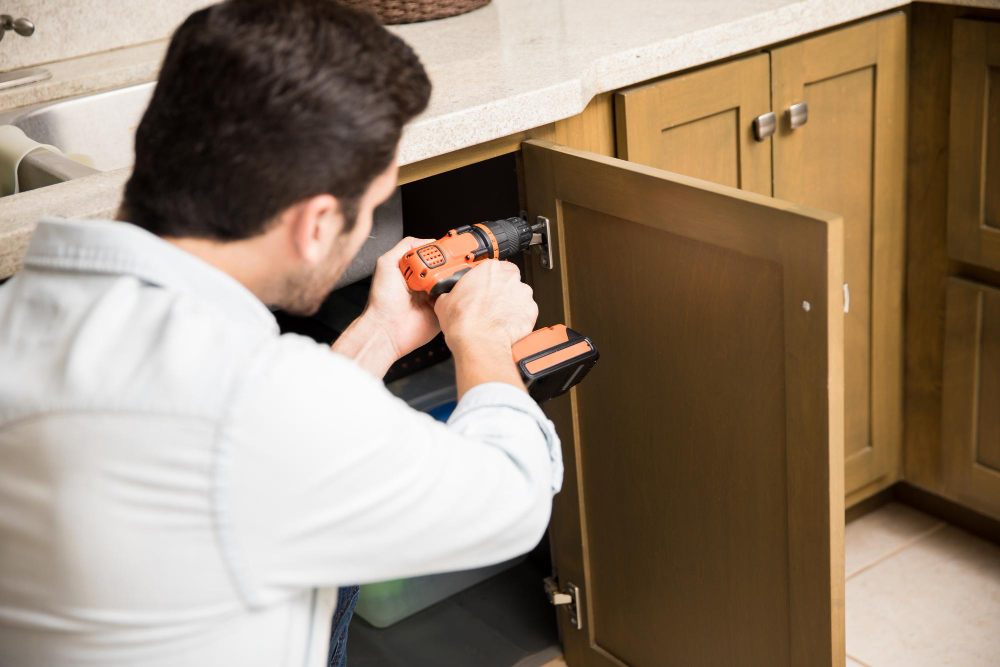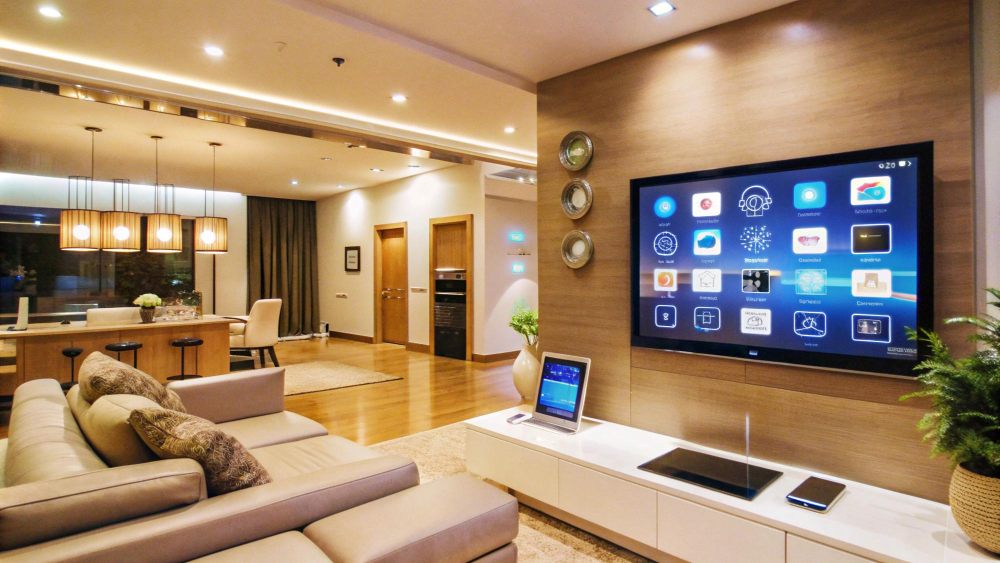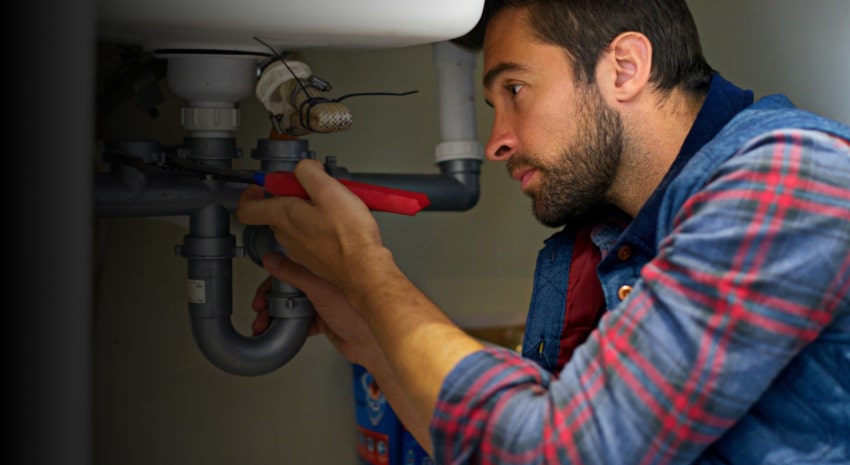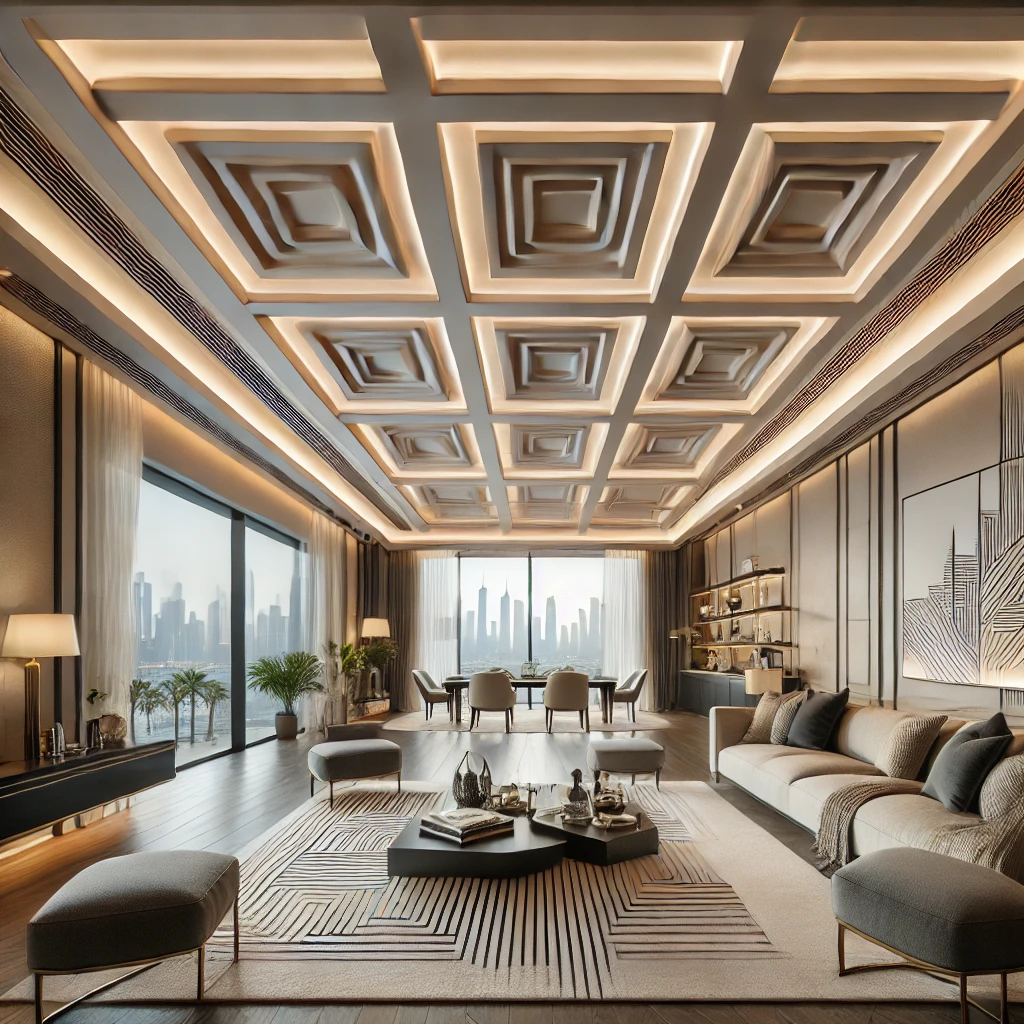Why Renovation Rules Are Important in Dubai
Renovating a villa or apartment in Dubai isn’t just about enhancing aesthetics—it’s a matter of safety, compliance, and community standards. The Dubai Municipality has set strict renovation rules that ensure upgrades are carried out without affecting the building’s structural integrity or causing inconvenience to neighbors.
Ignoring these rules can lead to:
- Project stoppages enforced by building management or inspectors
- Fines ranging from AED 500 to AED 50,000, depending on the violation
- Delays in property resale, as non-compliant upgrades may be flagged in valuation reports
Unlike many other countries where homeowners have more freedom to modify interiors, Dubai’s dense residential communities and high-rise living make these regulations crucial. For example, an unapproved wall removal in an apartment tower could compromise fire exits or weaken shared structures, creating risks for the entire building.
🔑 Key takeaway: Renovation rules in Dubai are not “red tape”—they are safeguards designed to protect residents, maintain property values, and ensure smooth community living.
What Type of Renovations Require Dubai Municipality Approval
Many homeowners are surprised to learn that even relatively small projects may require approval. Dubai Municipality (DM) differentiates between major renovations, minor cosmetic changes, and restricted works, with specific rules for each category.
Major Structural Changes That Require Approval
These projects always need a Dubai Municipality permit, along with a No Objection Certificate (NOC) from the property developer or owners’ association:
- Removing or adding internal walls
- Relocating plumbing or drainage lines
- Electrical rewiring or adding new heavy-load circuits
- Installing additional air-conditioning units or ducts
- Any external façade modification
Minor Upgrades That May Not Require DM Approval
Cosmetic changes inside your unit often don’t need direct municipal approval (though some buildings still require a notification or NOC):
- Painting walls or ceilings
- Replacing floor tiles without altering the substructure
- Changing cabinetry, countertops, or sanitary fittings (like faucets and showers)
- Upgrading lighting fixtures, provided no rewiring is involved
Grey Areas That Confuse Homeowners
Certain works fall in a grey zone where approvals depend on the scope of work and the developer’s rules:
- Replacing kitchen exhaust systems (may require inspection)
- Installing Jacuzzi tubs or heavy fixtures that could affect flooring load
- Adding partitions in open-plan apartments
🛠 Pro Tip: Before starting any work, always consult both Dubai Municipality guidelines and your building management. Some developers enforce stricter rules than DM, and failing to check both can delay your project.
👉 For a step-by-step guide on the NOC process, check our blog: Renovation Permits and NOCs in Dubai: What You Need Before Starting.
Key Dubai Municipality Renovation Rules for 2025
Dubai Municipality (DM) updates its building codes regularly, and 2025 rules emphasize safety, sustainability, and resident well-being. Whether you’re renovating a small apartment or a luxury villa, these are some of the most important regulations to keep in mind.
Contractor Licensing Requirements
- Only Dubai-licensed contractors can apply for permits and carry out approved renovation works.
- Hiring unlicensed contractors may result in fines and can void your building insurance.
- Contractors must provide their DM registration number and valid trade license when submitting applications.
Approved Materials and Fire Safety Codes
- All renovation materials—tiles, paints, cladding—must be sourced from DM-approved suppliers.
- Fire-rated doors, insulation, and electrical fittings are mandatory for certain types of properties.
- Using substandard or non-approved materials can trigger rework and additional inspections.
Noise and Work Timing Restrictions
- Renovation work is generally restricted to 8:00 AM – 6:00 PM, Sunday to Thursday in most residential areas.
- Loud demolition or drilling activities may require special scheduling with building management.
- Violations often result in complaints and can cause your NOC to be suspended.
🔎 Tip: Always cross-check timing restrictions with your developer (Emaar, Nakheel, Damac, etc.), as each community may enforce stricter rules.
Documents You Need for Renovation Approval
One of the main reasons renovation approvals are delayed in Dubai is incomplete or incorrect documentation. Submitting the right paperwork upfront saves weeks of back-and-forth with the Municipality and your developer.
Here’s a typical checklist:
- Title deed or tenancy contract – to prove ownership or tenancy rights
- Floor plan drawings – showing proposed changes (signed by a licensed engineer/contractor)
- NOC from the developer/owners’ association – required before applying for DM permits
- Contractor’s trade license and DM registration number
- Health and safety compliance forms – including waste disposal and fire safety commitments
Common Mistakes That Delay Approval
- Submitting hand-drawn or incomplete floor plans
- Using a contractor not recognized by DM or your developer
- Missing signatures from the building’s facility management team
- Not providing structural load calculations when adding heavy installations (like a Jacuzzi or stone counters)
🧾 Pro Tip: Ask your contractor to prepare and submit all required documents on your behalf—they’re familiar with the process and can spot issues before submission.
Common Penalties for Ignoring Renovation Rules in Dubai
Homeowners sometimes underestimate the consequences of starting renovations without Dubai Municipality approval. But the penalties can be costly, stressful, and long-lasting.
Typical Penalties Include:
- Fines: Ranging from AED 500 for minor breaches (like noise violations) up to AED 50,000 for major structural changes without permits.
- Work stoppages: Inspectors or building management can order your renovation to halt immediately, leaving your property partially demolished.
- Loss of deposits: Most developers require a refundable deposit before work starts; violations can forfeit this amount.
- Insurance complications: If an accident happens during an unapproved renovation, your insurer may reject the claim.
- Resale issues: Properties with non-compliant modifications often face delays or reduced valuations during resale.
📌 Example: In a high-rise tower in Downtown Dubai, a unit owner removed a load-bearing wall without approval. Not only was the project stopped, but the owner also paid AED 30,000 in fines and had to restore the wall at their own expense.
👉 Related topic idea we can cover next: “Hidden Costs of Non-Compliance During Renovations in Dubai.”
How Dubai Municipality Inspections Work
Inspections are an integral part of the approval process. They ensure that renovations comply with safety codes, building regulations, and community standards. Homeowners should understand when and how inspections take place to avoid surprises.
Types of Inspections
- Pre-Renovation Inspection
- Conducted before work begins.
- Confirms that proposed changes match approved drawings and documentation.
- Mid-Project Inspections
- Random or scheduled checks during the renovation.
- Focus on electrical, plumbing, and structural work.
- Inspectors may request adjustments if non-compliance is detected.
- Final Approval Inspection
- Takes place once work is complete.
- Ensures everything matches the approved plans, materials, and safety codes.
- Only after this inspection is the completion certificate issued.
Tips to Pass Inspections Smoothly
- Work with a licensed contractor familiar with DM protocols.
- Keep all permits and drawings available for inspectors.
- Avoid last-minute changes without informing your contractor or DM.
🛠 Pro Tip: Schedule inspections early and keep communication open with inspectors—it speeds up the process and avoids costly delays.
Working With Licensed Contractors vs. DIY in Dubai
In many countries, homeowners attempt DIY renovations to save money. But in Dubai, DIY renovations beyond basic cosmetic changes (like painting or furniture assembly) are not legally allowed.
Licensed Contractors: The Safer Choice
- Mandatory Requirement: Dubai Municipality requires all structural, electrical, and plumbing works to be carried out by licensed contractors.
- Accountability: Contractors are responsible for compliance, documentation, and scheduling inspections.
- Time Efficiency: Experienced contractors handle approvals faster because they know the system.
- Risk Reduction: Using an unlicensed or informal team can result in immediate work stoppage and fines.
DIY Limitations in Dubai
- Allowed: Minor works like hanging shelves, painting walls, or installing curtains.
- Not allowed: Removing walls, rewiring, plumbing changes, or flooring modifications without approval.
⚖️ Key Takeaway: What may be a “DIY project” elsewhere could be a legal violation in Dubai. Always involve a licensed contractor for anything beyond surface-level improvements.
👉 Future blog idea: “Why Licensed Contractors Are Essential for Renovations in Dubai.”
Tips to Ensure Smooth Renovation Approval in Dubai
Getting renovation approvals doesn’t need to be stressful if you prepare the right way.
1. Start with Clear Plans
Prepare accurate drawings with your contractor—vague plans often cause rejection or delays.
2. Hire the Right Contractor
Work only with contractors approved by Dubai Municipality and familiar with your building’s developer.
3. Coordinate With Building Management
Many communities (like Emaar or Nakheel) have their own NOC procedures in addition to DM approvals.
4. Factor in Time
Approval processes can take 2–4 weeks depending on complexity. Avoid planning renovations around tight deadlines.
5. Maintain Good Communication
Keep in touch with inspectors, your contractor, and building management to avoid last-minute surprises.
6. Keep Records Safe
Retain all NOCs, approvals, and inspection reports for future resale or insurance purposes.
🏡 Example: A villa owner in Arabian Ranches saved both time and stress by involving their community management early—approval was granted in just 10 days instead of the usual 3 weeks.


